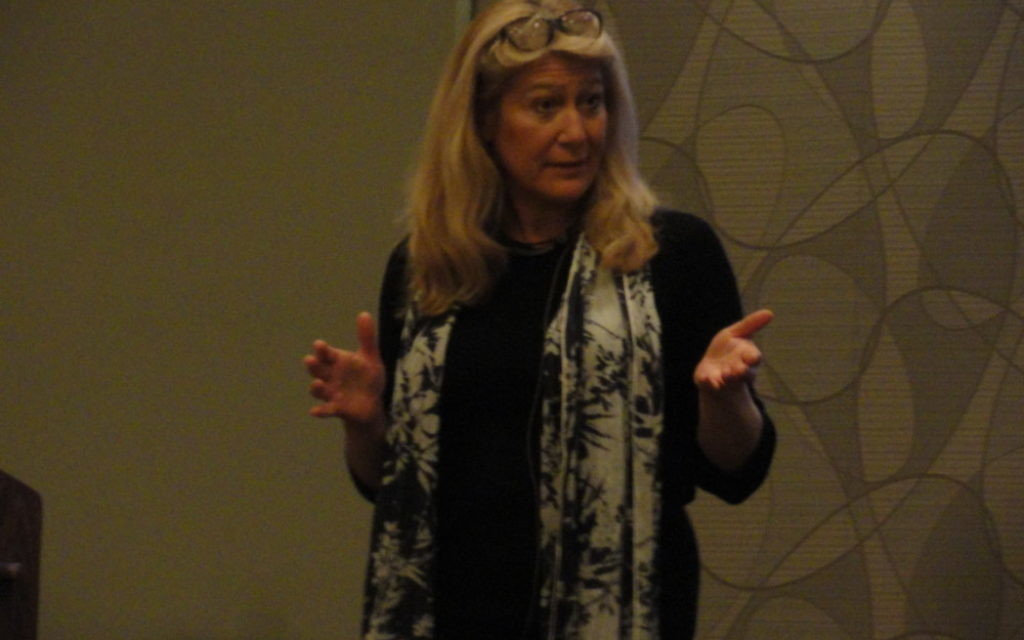Science Finds Space for Spirituality in Child Health
Psychologist Lisa Miller has devoted the past 20 years to an unusual area of research: the link between science and spirituality and the benefits conferred on the mental and physical well-being of children.
“When I first started out in 1996, there was not one single peer-reviewed scientific article on spirituality and mental health in children. So the struggle to define what’s good practice and treatment with illness and health — in the American Journal of Psychiatry or in the Journal of the American Academy of Child and Adolescent Psychiatry — was completely silent on spiritual life,” Miller said while delivering the annual Alembik Lecture on Sunday, Dec. 4, at Temple Sinai.
“The psychology and mental health fields minus spirituality simply made no sense to me,” she said. “So I set to work with other labs around the country, and we now have, 20 years later, a very strong body of science and spirituality in the first two decades of life.”
Get The AJT Newsletter by email and never miss our top stories Free Sign Up
Miller is a professor at Columbia University and the author of “The Spiritual Child: The New Science on Parenting for Health and Lifelong Thriving.” She is the director of the Spirituality Mind Body Institute at Columbia’s Teachers College.
“I see plain as day in my work with children in Harlem and Washington Heights that the road to recovery for children who had survived great loss and suffering was entirely different when there was a personal connection to a higher power or the source of life or a sense of sacred presence in a child’s life and was held by the family,” she said.
In her book, Miller presents the view that children who have a positive, active relationship with spirituality are less likely to use drugs, be depressed, or have dangerous or unprotected sex and “have significantly more positive markers for thriving, including an increased sense of meaning and purpose and high levels of academic success.”
But in her research, Miller found that a child’s background can make an enormous difference. “When we looked at well-resourced communities like Fairfield County outside New York and Marin County outside San Francisco, we found something that really shocked the field and at the time shocked our society: the rate of depression, the rate of suffering, anxiety, substance use — all those very prevalent forms of struggle — are actually more prevalent at higher rates per family in the affluent suburbs than the inner city.”
Miller said the elevated rates of depression and anxiety — the inner void — and the painful abdication of natural spirituality in teens have an enormous cost. “It’s actually more true among affluent teens than in children in poverty. Uniquely in the United States, with education we become less spiritually aware.”
She sees this as an opportunity, however. “In that matrix, the most important person in the whole world is you as the grandparent, you as the father or mother. You are the one who turns the tide in this cultural tidal wave. What we know as Jews, from generation to generation — the passing of the torch — is that seeing through the lens of science can be the most powerful of all possibilities for igniting your child’s deep spirituality.”





comments